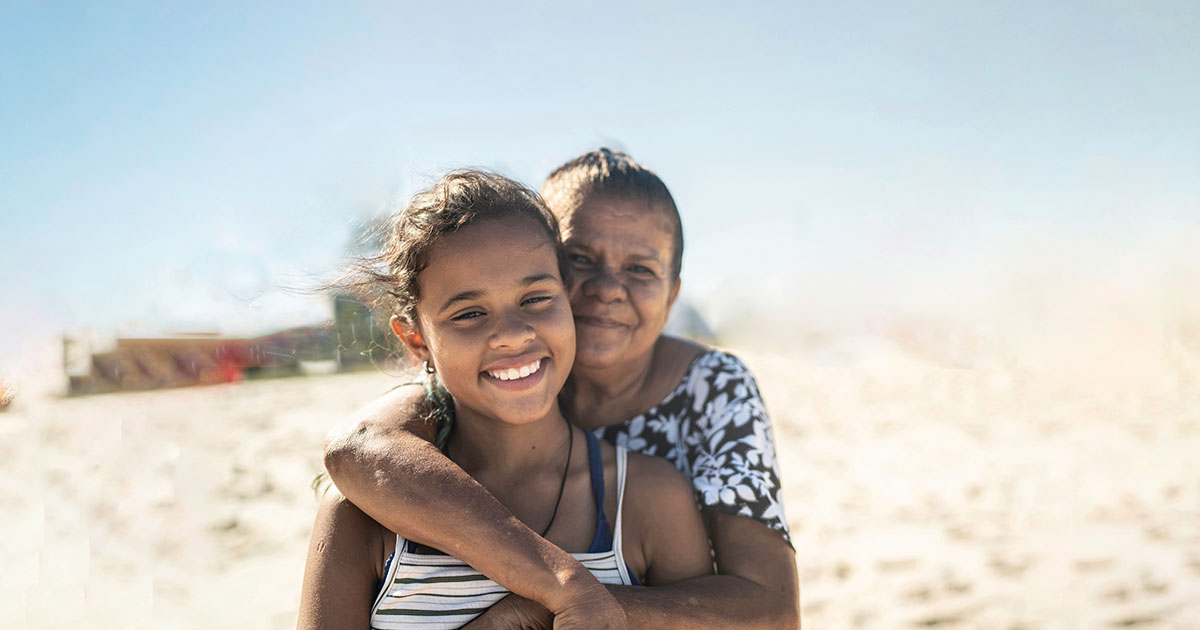There's no place like home for families in need
- Details
To every person, family is something different. It may be large extended families, small close-knit families, or friends who become more like family over the years. For many people families are a great source of hope and support and a central part of their daily lives.
National Families Week in Australia (15- 21 May) is a celebration of the family and the role it plays in society. It is a recognition of strong, healthy families as the core building block to stronger communities.
Yet not everyone can relate to positive visions of families. We face the reality that families make up half of those seeking support from homelessness services. Whatever their size, situation or circumstance, these are the families that require our focus and support.
While poverty and the dire lack of social and affordable housing does much to drive homelessness for families, the question remains - why do some families experiencing poverty become homeless and others do not?
We recently completed a major piece of research in conjunction with Western Sydney University that explores this question and points to just how central the role of family is for those at risk of homelessness.
The research included in-depth interviews with families at risk of homelessness and the theme of ‘family’ was front and centre when talking about both the highs and lows of their life stories. In particular, one of the most common reasons for family homelessness was relationship conflict and breakdown. It also brought to the fore that an important factor in avoiding homelessness was stable family relationships that were able to provide support in emotional and material ways.
Participants with no experience of homelessness tended to describe their families as strongly supportive, characterised as being ‘my rock’ and providing material assistance when in need – such as meals or a safe place to stay. In addition to the support that they provide, families were equated with strength. This was described in terms of family members working together to get through difficult times and committing to staying together. There was a shared understanding that family members should be consistently there for each other, understanding of decisions, forgiving of past mistakes and encouraging during periods of self-doubt.
I am sure these concepts of family resonate with many of us. We turn to our family when times are tough and we celebrate with our families when times are good. We might have fond memories of the family we grew up in or have faced real challenges in our family of origin and be trying hard to create a better life for our children.
For nearly all families in our research, becoming a parent motivated them to create a good life and a better future. Like many parents, they wanted their children to have better experiences than they might have had within their own families and were highly motivated to be the best parent they could be. Critically, having a safe and stable home was closely tied to this idea of being a good parent and creating a different future.
Housing and homelessness were also closely intertwined with a sense of family belonging. For some who were involved in the study, staying together as a family regardless of their housing circumstances was important. I recall one person explaining that family was about doing things together and describing how activities like Sunday dinner fostered a sense of belonging and connectedness. They stressed the importance of maintaining these activities regardless of changes in their housing or other personal circumstances. For others, having a stable home facilitated family belonging and identity. It provided them with the space to define what it means to be a family, away from the influences and scrutiny of their original family or their partner’s family.
It is clear, no matter your circumstance, the need for a strong and supportive family is crucial to everyone’s wellbeing. One way we can support this is by ensuring the services we provide to those in need are centred on creating resilience within the family unit. Put simply, it is supporting self-sufficiency, promoting positive relationships, providing emotional support and instilling hope that all this can be achieved.
Further, offering non-homelessness and specialist homelessness support together at the same location, as we do at our Kingswood centre in Western Sydney where this research took place, has substantial benefits for families. This approach creates easier and clearer pathways into support and provides an integrated response and continuous nurturing through referrals across different programs and teams. Importantly, it also allows for earlier identification of those who are at risk of homelessness, connecting them to support before they reach crisis point.
To effectively prevent homelessness, we must also ensure that families have access to adequate income support when they are not in paid work and going through difficult periods. It is clear that current rates of Newstart and Youth Allowance need to be increased to reduce the stress that financial insecurity places on family life. In fact, ensuring the adequacy of income support is one of the most important and effective ways of preventing poverty and reducing homelessness across Australia.
During families week, I urge you to take the time to celebrate your family, whatever form they may take and to remember that there are many families experiencing homelessness that need a place to call home. We can all support families to build resilience and navigate life’s ups and downs, be it our own family, the families we work with or those within our communities.
There are two reports on our Family Homelessness project findings available here.

James Toomey
CEO Mission Australia
@jbc_toomey
Related media releases
Read about what we’ve been working on, our stance on important social issues and how you make a difference to vulnerable Australians' lives.



